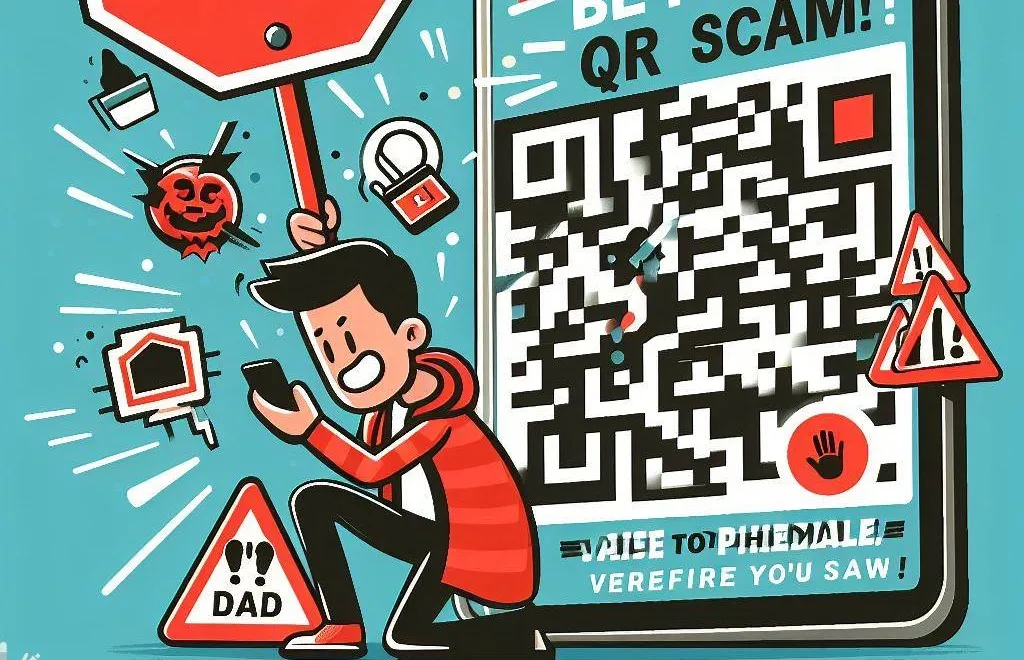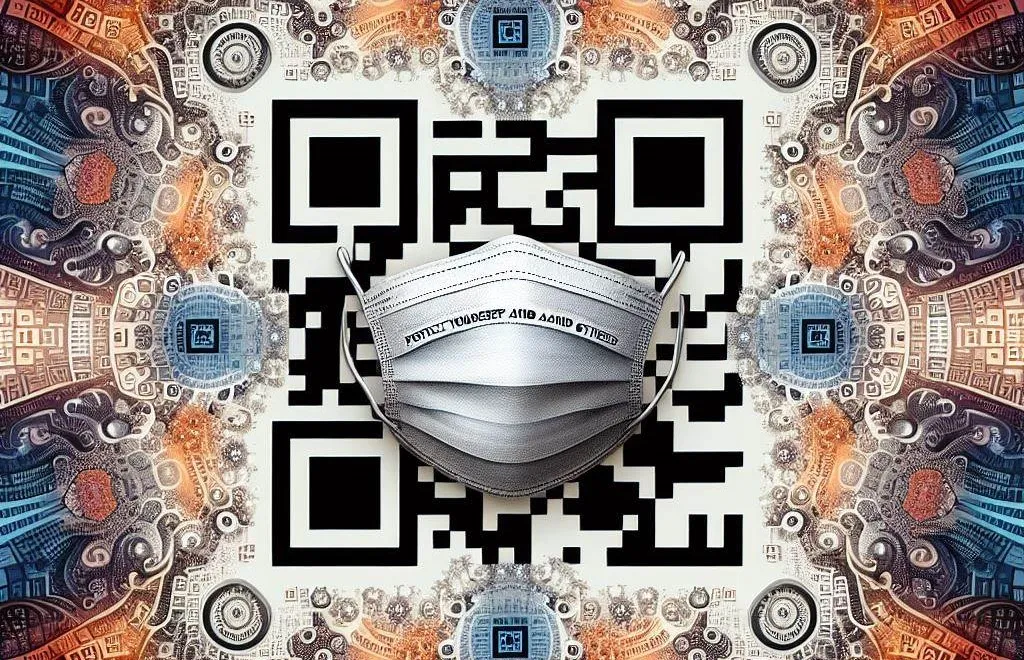In the ever-expanding realm of digital communication, the pervasive threat of scams and hacks persists, with QR codes becoming a new avenue for exploitation. “QR code scams,” colloquially referred to as “quishing attacks,” have emerged as a pressing concern. In this comprehensive guide, we’ll delve into the intricacies of QR code scams and equip you with the knowledge to effectively shield yourself from these digital pitfalls.
How QR Code Scams Work

QR codes, those intricate black-and-white patterns, once innocently used for quick information retrieval, now harbor potential dangers. While QR codes often lead users to legitimate websites or provide useful information, there’s an inherent risk of directing individuals to malicious destinations. The challenge lies in the ambiguity surrounding scanned QR codes, making it unclear whether the associated website is secure or a potential scam.

Crafting a deceptive QR code requires minimal effort, with readily available tools enabling scammers to attach these codes to emails, embed them in documents, or strategically place them in public spaces. The motivations behind QR code scams align with traditional phishing attacks, aiming to compromise device security, extract sensitive information, or coerce users into revealing login credentials. It’s a new method that demands heightened vigilance from users.
How to Protect Yourself from QR Code Scams

- Exercise Prudent Caution with Unknown Sources: Treat QR codes with the same wariness as emails or messages from unfamiliar sources. Be especially cautious when encountering QR codes in suspicious emails or on unverified websites.
- Verify the Legitimacy of the Source: While QR codes in reputable locations, such as your local restaurant’s menu, are likely safe, it’s essential to remain cautious. Compromised accounts can distribute deceptive QR codes even from seemingly trustworthy sources.
- Prioritize Link Previews: Take advantage of smartphone features that allow you to preview the link associated with a QR code before visiting the website. This extra step enhances your ability to assess the safety of the destination.
- Stay Alert to Urgency Tactics: QR codes accompanied by urgent messages, claiming identity verification, account protection, or limited-time offers, should raise red flags. Scammers often manipulate urgency to deceive individuals.
- Fortify Digital Account Security: Enable two-factor authentication on accounts that support this feature. Keep personal details updated, including backup email addresses and phone numbers for account recovery. Regularly log out of unused devices and eliminate unnecessary accounts.
- Maintain Updated Software: Ensure your mobile web browser and operating system are up-to-date. Modern browsers often integrate features to detect and warn against fraudulent links, bolstering overall security.
By embracing these proactive measures, you can substantially diminish the risk of falling prey to QR code scams. Vigilance and a commitment to digital security practices are imperative in navigating the evolving landscape of cyber threats. Stay informed, exercise caution, and fortify your digital defenses against the insidious realm of QR code scams.
You may also like:
How to get Free Robux 2023: 11 Ways to Unlock Treasure
Defending Against QR Code Scams: FAQs
What is a QR code scam?
A QR code scam, or “quishing attack,” involves deceptive codes that lead to fraudulent websites, compromising security or extracting sensitive information.
How can I spot a potentially harmful QR code?
Exercise caution with QR codes from unknown sources. Preview the link before scanning and verify the source to ensure legitimacy.
Are QR codes on everyday items safe to scan?
Generally, QR codes in reputable locations are safe. Yet, remain cautious, as compromised accounts can distribute deceptive QR codes even from trustworthy sources.
What if I receive a QR code with an urgent message?
Be wary of urgent messages. Verify legitimacy through alternative means, as scammers often use urgency to manipulate individuals.
How can I protect against QR code scams?
Fortify your digital defenses with two-factor authentication, updated personal details, logging out of unused devices, and maintaining up-to-date software.



